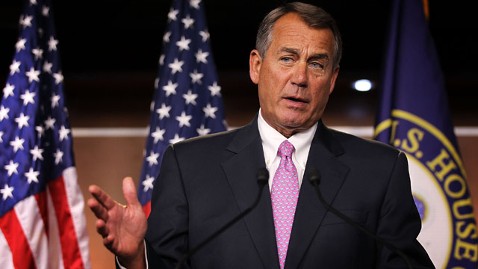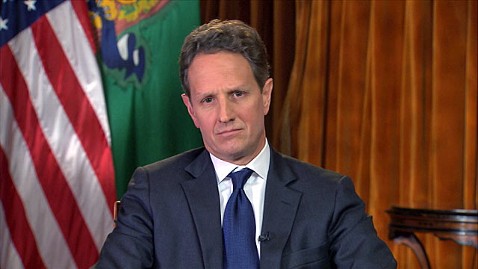JERUSALEM (Reuters) - Israel faced concerted criticism from Europe on Monday over Prime Minister Benjamin Netanyahu's decision to expand settlement building after the United Nations' de facto recognition of Palestinian statehood.
Britain, France and Sweden summoned the Israeli ambassadors in their respective capitals to hear deep disapproval of the plan to erect 3,000 more homes in the occupied West Bank and East Jerusalem.
Ahead of a Netanyahu visit this week, Germany, considered Israel's closest ally in Europe, urged it to refrain from expanding settlements, and Russia said it viewed the Israeli moves with serious concern.
Angered by the U.N. General Assembly's upgrading on Thursday of the Palestinians' status in the world body from "observer entity" to "non-member state", Israel said the next day it would build the new dwellings for settlers.
Such projects in the past, on land Israel captured in a 1967 war and which Palestinians seek for a future state, have routinely drawn almost pro forma world condemnation.
But in a dramatic shift that Netanyahu would have certainly realized would raise the alarm among Palestinians and in world capitals, his pro-settler government also ordered "preliminary zoning and planning work" for thousands of housing units in areas including the so-called "E1" zone east of Jerusalem.
Such construction in the barren hills of E1 - still on the drawing board and never put into motion in the face of opposition from its main ally, the United States - could bisect the West Bank, cut off Palestinians from Jerusalem and further dim their hopes for a contiguous state.
The settlement plan, U.N. Secretary-General Ban Ki-moon said, would deal "an almost fatal blow" to a two-state solution to the Israeli-Palestinian conflict.
Britain made clear it would not support strong Israeli retaliation over the U.N. vote, which Palestinians sought after peace talks collapsed in 2010 in a dispute over settlement building.
"We deplore the recent Israeli decision to build 3,000 new housing units and unfreeze development in the E1 block," a Foreign Office spokesman said. "We have called on the Israeli government to reverse the decision."
But a spokesman for British Prime Minister David Cameron played down talk of recalling Britain's ambassador in Tel Aviv.
"We are not proposing to do anything further at this stage," the spokesman said. "We are continuing to have conversations with the Israeli government and others."
France expressed "serious concerns" to the Israeli ambassador, reminding him that settlement building in occupied territories was illegal and an "obstacle" to reviving peace talks with the Palestinians.
A French Foreign Ministry official, responding to reports Paris might bring its Tel Aviv envoy home, said: "There are other ways in which we can express our disapproval."
RETALIATION
Israeli Finance Minister Yuval Steinitz said Israel could not have remained indifferent to the Palestinians' unilateral move at the United Nations.
In Europe only the Czech Republic voted against the resolution while many countries, including France, backed it. Netanyahu also plans to visit Prague this week to express his thanks.
"I want to tell you that those same Europeans and Americans who are now telling us 'naughty, naughty over our response, understand full-well that we have to respond, and they themselves warned the Palestinian Authority," Steinitz told Army Radio.
Palestinian chief negotiator Saeb Erekat said building in E1 "destroys the two-state solution, (establishing) East Jerusalem as the capital of Palestine and practically ends the peace process and any opportunity to talk about negotiations in the future".
Sami Abu Zuhri, spokesman for the Hamas Islamist movement that governs the Gaza Strip, said the settlement plans were "an insult to the international community, which should bear responsibility for Israeli violations and attacks on Palestinians".
Only three weeks ago, Netanyahu won strong European and U.S. support for an offensive in the Hamas Islamist-run Gaza Strip, which Israel said was aimed at curbing cross-border rocket fire.
Favored by opinion polls to win a January 22 national election, he brushed off world condemnation of his latest settlement plans and complaints from critics at home that he is deepening Israel's diplomatic isolation.
He told his cabinet on Sunday that his government "will carry on building in Jerusalem and in all the places on the map of Israel's strategic interests".
But while his housing minister has said the government would soon invite bids from contractors to build 1,000 homes for Israelis in East Jerusalem and more than 1,000 in West Bank settlement blocs, the E1 plan was still in its planning stages.
"No one will build until it is clear what will be done there," the minister, Ariel Attias, said on Sunday.
Israel froze much of its activities in E1 under pressure from former U.S. President George W. Bush and the area has been under the scrutiny of his successor Barack Obama.
Most world powers consider Israel's settlements to be illegal. Israel cites historical and Biblical links to the West Bank and Jerusalem and regards all of the holy city as its capital, a claim that is not recognized internationally.
Approximately 500,000 Israelis and 2.5 million Palestinians live in the West Bank and East Jerusalem.
(Additional reporting by Crispian Balmer, Dan Williams, Nidal al-Mughrabi in Gaza, Jihan Abdalla in Ramallah, Sreve Gutterman in Moscow, Gareth Jones in Berlin, John Irish in Paris and Tim Castle in London; Writing by Jeffrey Heller; Editing by Giles Elgood)











